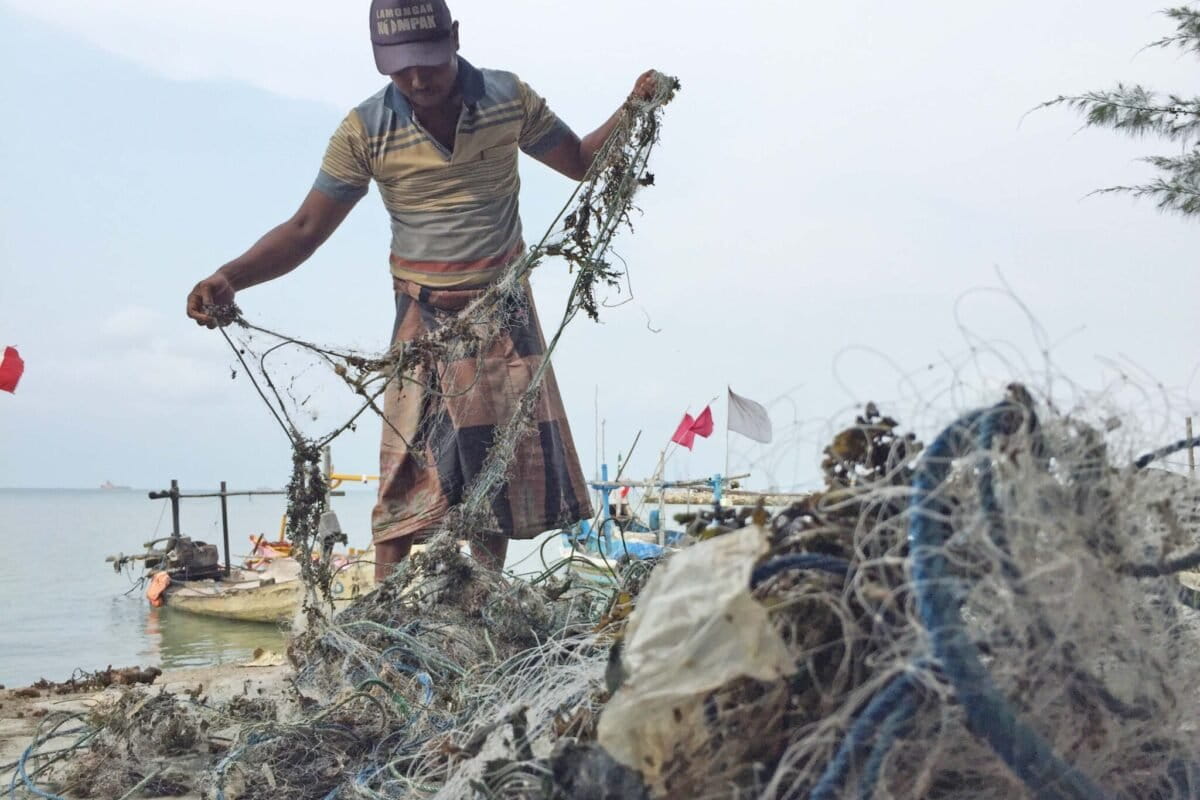- Thirteen organizations and businesses in Indonesia have launched the Indonesian Reuse Association (AGUNI) to promote sustainable reuse systems as an alternative to single-use plastic.
- AGUNI members, ranging from micro-enterprises to startups, already operate more than 1,000 refill and reuse access points nationwide.
- Indonesia faces a severe plastic waste crisis, leaking an estimated 1.3 million metric tons of plastic into the ocean annually, making it one of the world’s top marine polluters.
- Experts say reuse is more sustainable than recycling, and AGUNI aims to scale adoption, strengthen member capacity, and support a circular economy that reduces pollution and benefits the economy.
JAKARTA — Thirteen organizations and businesses have launched the Indonesian Reuse Association, or AGUNI, a coalition dedicated to building a sustainable reuse system to curb the country’s worsening waste crisis.
AGUNI serves as a collective hub for pioneering businesses offering reuse-based solutions for everyday needs, ranging from micro-enterprises to tech-based startups. Collectively, its members already operate more than 1,000 refill and reuse access points nationwide.
The launch coincides with a global push toward a circular economy — an economic model where materials are kept in use for as long as possible — and growing consumer awareness of the need for more responsible lifestyles.
A member of AGUNI, YAGI Natural, provides beauty products with returnable packaging, meaning customers can return empty containers to be reused.
“With the establishment of AGUNI, we hope to invite more consumers to embrace a social norm that aligns with nature,” YAGI Natural co-founder Zulfikar said.
Another AGUNI member, TAKSU Reuse, provides reusable cups, forks and plates for events.
“With AGUNI, we are moving together to mainstream reuse as part of everyday life,” said Ni Luh Sri Junantari, chief operating officer of TAKSU Reuse.
Other members include enterprises offering returnable takeaway containers and bulk distribution systems.

A mounting waste crisis
Indonesia’s waste crisis continues to worsen, with millions of tons of garbage left unmanaged, clogging rivers and polluting the ocean. The issue of plastic waste is particularly dire as Indonesia leaks an estimated 1.3 million metric tons of plastic into the ocean each year — enough to fill 520 Olympic-sized swimming pools — making it one of the world’s largest marine plastic polluters.
Amid this pollution, “reuse” — where products are returned, cleaned, and used again — is emerging as a key alternative to single-use packaging. Experts say it offers a systemic, scalable solution to curbing plastic pollution while also creating economic opportunities.
The global 3Rs hierarchy of “Reduce, Reuse, Recycle” prioritizes reducing waste at the source and reusing materials before recycling. Recycling alone, experts say, is not sufficient. With a greater focus on reuse, proponents point to reduced demand for raw material, limited waste leakage, and support for small-scale producers and service providers.
“Some ask, ‘Doesn’t washing reuse containers waste water?’” said Tiza Mafira, the director of the Indonesia Plastic Bag Diet Movement, a civil society initiative and AGUNI member that aims to get people to cut back on their plastic use through the 3Rs. “Actually, washing one bottle 50 times uses far less water than recycling 50 single-use bottles — it’s much less energy- and resource-intensive.”

From initiative to coalition
In 2022, the Indonesia Plastic Bag Diet Movement and nonprofit venture-building foundation Enviu formed a collaborative platform called the reuse special interest group. That effort evolved into today’s AGUNI.
Besides promoting reuse as a primary solution to plastic pollution, AGUNI also aims to strengthen its members’ capacity to accelerate adoption, develop business models and standards based on reuse principles, and expand collaboration at national and global levels.
These efforts, the coalition says, are stepping stones toward the ultimate goal of achieving a circular economy free from plastic pollution.
“Imagine every market and shop offering reusable products; every home preparing reusable containers; and logistics services not only delivering products but also picking up reuse containers,” Tiza said. “At scale, this could greatly boost Indonesia’s economy. According to our research with the University of Indonesia, switching to reuse gives the economy a net benefit of 1.5 trillion rupiah [$93 million].”
Banner image: A fisherman cleans the plastic waste caught in his net. The plastic waste damages fishing nets. Image by Falahi Mubarok/Mongabay Indonesia.
FEEDBACK: Use this form to send a message to the author of this post. If you want to post a public comment, you can do that at the bottom of the page.
Source link
#coalition #focuses #reuse #tackle #top #polluter #Indonesias #plastic #waste #problem
